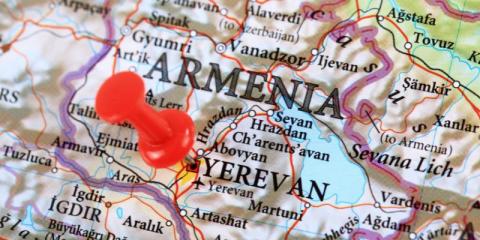Armenia, a small, landlocked country in the South Caucasus, joined the Eurasian Economic Union (EEU) in 2015. The EEU is an economic bloc that includes Russia, Kazakhstan, Belarus, Kyrgyzstan, and Armenia. Joining the EEU marked a significant shift in Armenia's foreign policy and has had major implications for its economy.
One of the primary benefits of joining the EEU was improved access to the Russian market. Russia is a major trading partner for Armenia, and the EEU membership has facilitated the flow of goods and services between the two countries. Additionally, joining the EEU has provided Armenia with a platform for engaging in broader economic integration with the other member states.
However, the EEU membership has also presented some challenges for Armenia. One of the main concerns has been the impact on Armenia's relations with the European Union (EU). Prior to joining the EEU, Armenia had been negotiating an association agreement with the EU, which included provisions for deeper economic integration. However, the decision to join the EEU effectively put an end to those negotiations.
Another issue has been the impact of EEU regulations on the Armenian economy. Critics argue that the regulations and standards imposed by the EEU are often geared towards the larger economies in the bloc, and can be onerous for smaller economies like Armenia. Some also argue that the EEU membership has made it more difficult for Armenia to attract foreign investment, as investors may be deterred by the country's association with a bloc that is often viewed as being less investor-friendly.
Despite these challenges, the EEU membership has had some positive impacts on Armenia's economy. The increased trade with Russia has provided a boost to certain sectors, such as agriculture and manufacturing. Additionally, the EEU has provided a platform for Armenia to engage with other member states on issues such as transportation and energy, which could potentially lead to increased economic cooperation.
In conclusion, Armenia's membership in the EEU has had both positive and negative implications for its economy. While the improved access to the Russian market has been a boon for certain sectors, the challenges posed by the regulations and standards of the EEU have been a concern for some. As Armenia continues to navigate its relationship with the EEU, it will be important to carefully consider the benefits and drawbacks of membership, and to continue to pursue policies that promote economic growth and development.





